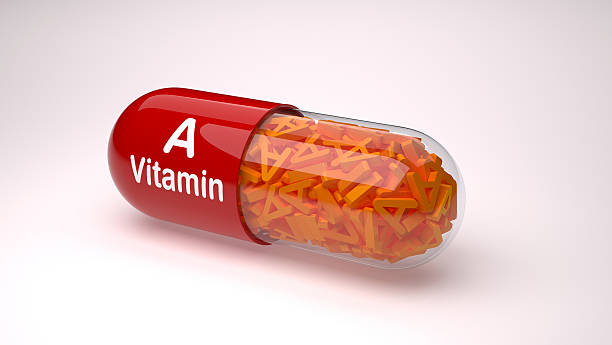The Natural Retinol..

Retinol For Skincare
Everywhere I look people are extolling the miraculous anti-ageing, wrinkle fighting benefits of retinol. However, retinol or retinoids can have quite unpleasant side effects.. They increase skin sensitivity so extra care must be taken in the sun. Can cause excessive dry skin, peeling, burning, stinging and redness. It's also not safe for pregnant or breastfeeding women as high amounts of retinol can cause liver damage and birth defects. The Environmental Working Group (EWG) scores retinol at a 9 due to known reproductive toxicity concerns.
Retinol products also tend to contain fillers and preservatives, a no-no for those who prefer plant-based and natural products.
So What Are Retinoids & Retinol
Retinol and retinoids are forms of Vitamin A that are either artificially synthesised in a lab or derived from milk or egg enzymes. If you want vegan skincare this is something you should check before buying.
Retinol is the weaker ‘over the counter version’ of the prescribed retinoids which the doctor may offer for conditions such as acne.
How Retinol Works
When absorbed into our skin, retinol is broken down and converted into retinoic acid, this then purges old skin cells and helps new, healthy cells to form. It also stimulates collagen, which gives your skin that firm plumpness, smoothes out fine lines and corrects pigmentation.
Natures Vitamin A
If it's vitamin A you are after in your skincare, a natural, plant based version which does not need preserving is Beta-carotene. Rosehip oil and macerated carrot-root oil is abundant in Beta-carotene. Apricot kernel oil also contains Vitamin A and has been recently recommended by Elle Magazine as an alternative to retinol. All these oils actually help your skin prepare for the sun.
Rosehip oil in-particular is famous for aiding the appearance of fine lines & wrinkles and is used to treat scar tissue. That’s right, it helps to make scars vanish! This is because it helps rebuild healthier skin cells. And when formulated with Cicatrisant (cell regenerative) essential oils like Neroli, Bergamot, Geranium or Frankincense this increases these benefits even more. Our highly rated Hammam Moisturising Serum is made with Rosehip & Apricot oils and cicatrisant essential oils of Neroli and Bergamot.
These natural oils also have a host of other useful properties; Rich in omega 3’s and other fatty acids, obvious moisturising benefits, collagen boosting, minerals and other vitamins, and good for general skin disorders. They have no side-effects!
Good quality unrefined Rosehip seed oil definitely helps with wrinkles and fine lines. It has been clinically tested and proven by research carried out in Chile in the early 1980's by Dr. Fabiola Carbajal Montiel. The results were found to be incredible. Even scars that were over 20 years old showed marked improvement after using rosehip oil. Rosehip oil was found to regenerate the skin, reduce scars and wrinkles, prevent the advancement of wrinkles and ageing, and help skin to regain its natural colour and tone. Check out my friend Lorraine, CEO of Formula Botanica talk about this study here.. http://www.herbhedgerow.co.uk/best-oil-for-wrinkles-scars/
My Main Concern With Synthetic Ingredients in Skincare Is..
Synthetic ingredients are not broken down by the body the same as natural materials are. Studies into how they react with our biological system are usually way behind the consumer trends in the sales of these products.
Take margarine for example.. sold to us as a healthy alternative to butter for about 30 years before it became widely known that the hydrogenated fats in margarine turn into trans-fats in our bodies. This is because they are not recognised natural materials due to the commercial hydrogenation process the oil goes through. After all this time of being told that margarine is better for us and our hearts it is actually a lot worse for us.
__________________________________________________________________________
So I suppose the question is... Do you want margarine (retinol) or full fat butter (rosehip)..?
Natural Rosehip oil or Synthetic Retinol..?
__________________________________________________________________________
Our founder Gareth has been using rosehip seed oil on his face everyday for years and we are sure he's looking younger these days. But seriously, one thing you are sure to find from using Rosehip oil on your skin regularly, is more colour in your cheeks and a younger looking complexion. Our top rated Hammam Moisturising Serum contains a good amount along with Argan, Macadamia and Jojoba and a lovely blend of essential oils.
Old Faithful Skincare Philosophy
Our skin is the largest organ of our bodies and part of a holistic, biological system which works together to keep us in-tact and healthy. Generally, our bodies can maintain their own health and mend themselves but sometimes we require some help.
Most modern-day skincare comprises of synthetic ingredients that work against & counteract the natural processes of our skin, hair & nail system.
We believe that working with natural products, which are easily recognised and accepted by the body, is the best way to work in harmony with our skin and our system as a whole.
Side Note: Common Misconceptions of Rosehip Seed Oil..
There is NO Vitamin C in rosehip oil or any other oil for that matter. There is lots in the fruit but vitamin C is water soluble not oil soluble. So there is none in the oil right! Just thought I’d cover this as there are plenty of articles saying otherwise. Don’t you just love the internet for well-informed mis-information!
Also.. When purchasing pure rosehip seed oil you want to be looking for something which is unrefined and has a beautiful pinky-orange to red colour. It's the Beta-carotene which gives it this colour as it does with carrots. Refined oils kill off much of the good stuff including the Beta-carotene. So don't accept lame yellow rosehip oils.
Subscribe To Our Newsletter

